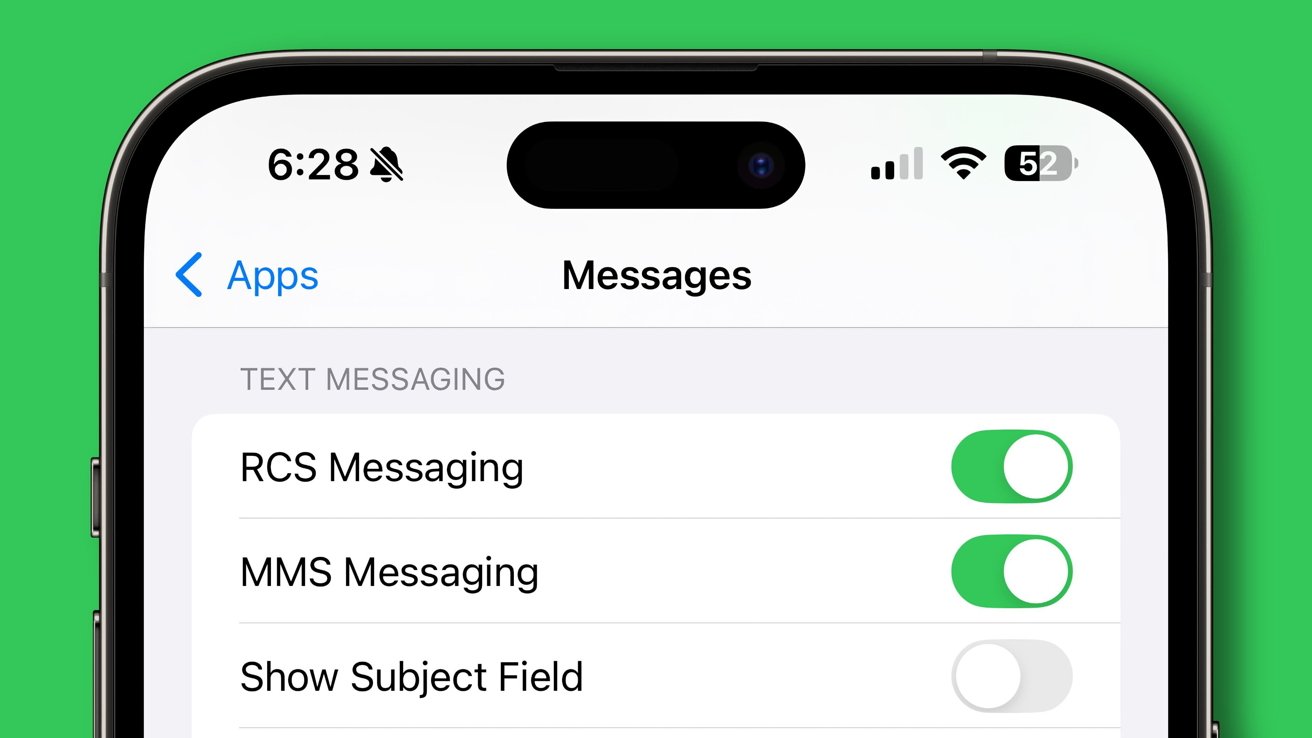Apple’s RCS Adoption in iOS 18
Apple's announcement of Rich Communication Services (RCS) support in iOS 18, slated for release in September, marks a pivotal shift in the messaging landscape.

Apple's announcement of Rich Communication Services (RCS) support in iOS 18, slated for release in September, marks a pivotal shift in the messaging landscape.
For years, iOS and Android users have experienced a fragmented messaging experience due to the limitations of SMS. With the adoption of RCS, Apple aims to bridge this gap, offering a more unified and feature-rich communication platform.
What is RCS?
RCS is a modern messaging protocol designed to replace SMS.
It brings several advanced features to the table, including:
- Typing Indicators: Users can see when someone is typing a message.
- Read Receipts: Notifications when a message is read.
- High-Quality Media Sharing: Ability to share images and videos in higher resolution.
- Support for Longer Messages: No more splitting long messages into multiple parts.
These features are akin to what iMessage offers but designed to work across different platforms, ensuring a seamless experience between iOS and Android users.
Informative and interactive demo of how RCS will work on iOS18.
Why Now?
The timing of Apple's decision to adopt RCS is influenced by multiple factors:
- Regulatory Pressure: The European Union has been pushing for greater interoperability between messaging platforms to avoid monopolistic practices. By supporting RCS, Apple aligns with these regulatory requirements, addressing concerns about its closed ecosystem. It might be also the Chinese government that is using pressure that has made Apple changed its mind. That is the conclusion John Gruber makes in his excellent article on Daring Fireball.
- Industry Pressure: Google and other industry players have long advocated for RCS to improve cross-platform messaging. Apple's adoption can be seen as a response to these efforts and a step towards greater user satisfaction and platform compatibility.
RCS vs. WhatsApp and Facebook Messenger
One might wonder if RCS is a direct competitor to messaging giants like WhatsApp and Facebook Messenger. Here’s a comparison:
- Functionality: RCS offers features like typing indicators, read receipts, and high-quality media sharing, similar to WhatsApp and Messenger. However, WhatsApp and Messenger are deeply integrated with Meta’s services, offering additional functionalities like social networking and encrypted messaging.
- Encryption: WhatsApp’s end-to-end encryption ensures that only the communicating users can read the messages. Initially, RCS on iOS will not have this level of encryption, although Apple plans to enhance security features over time.
- Platform Independence: RCS aims to be a universal standard across different devices and carriers, potentially simplifying cross-platform communication without needing third-party apps. However, WhatsApp and Messenger have already established a vast user base.
Identification in RCS
RCS identifies users primarily through their phone numbers, similar to SMS and MMS. This approach simplifies the user experience by integrating seamlessly with the native messaging app and eliminating the need for additional accounts or logins. Here’s a breakdown:
- Phone Number Based: Messages sent via RCS are tied to your phone number, ensuring compatibility with your existing contact list.
- Network Dependency: Both users' networks must support RCS for it to function. In regions where carrier support is lacking, messages will default to SMS.

Personal Reflection
Reflecting on the evolution from MMS to RCS, it's evident that the tech world has learned valuable lessons. MMS's shortcomings paved the way for apps like WhatsApp to dominate the messaging space by offering reliability and ease of use.
Now, with RCS, the goal is to provide these rich features natively, thus reducing reliance on third-party apps and offering a more cohesive experience across different platforms.
The inclusion of RCS in iOS 18 is a significant development that promises to enhance the messaging experience for millions of iPhone users worldwide. While RCS may not immediately dethrone WhatsApp or Facebook Messenger, it represents a significant step towards making rich, cross-platform messaging a standard feature for all users, without the setup headaches that plagued earlier technologies like MMS.
This move by Apple is a pivotal moment in the evolution of mobile messaging, potentially setting a new standard for cross-platform communication.




